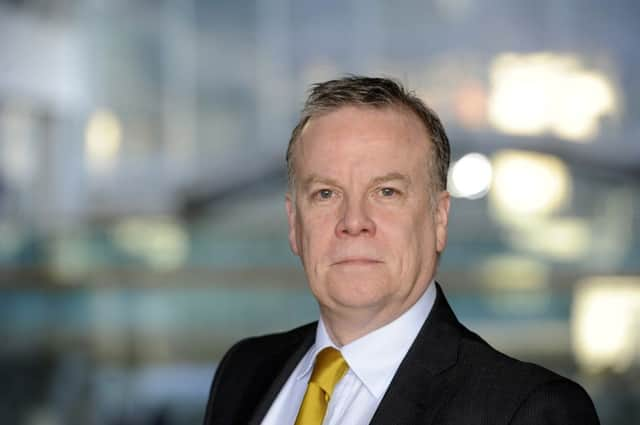Comment: Iceland’s woes could make Scotland shiver


Forecasting is a little pinch of science mixed with a generous helping of crystal ball gazing and depends on a number of factors, including unforeseen events that can throw such estimations off course.
Figures based on past behaviour are another matter as they are at least based on known facts, even if they, too, require a sprinkling of scepticism. With that condition in mind, data produced this week by the Banker magazine suggests that an independent Scotland would have gone bust following the banking crisis.
Advertisement
Hide AdAdvertisement
Hide AdThe Banker tells us that the combined balance sheets of the banks in Scotland would be 12 times that of the country’s economy. This compares with Iceland’s banking assets of ten times gross domestic product before its financial system went into meltdown. As Iceland required a massive bail-out from the International Monetary Fund, the implication in the Banker’s analysis is clear.
So, how reliable is this analysis from one of the sector’s own cheerleaders?
First Minister Alex Salmond maintains that the Bank of England would remain the lender of last resort for Scotland and, therefore, would prop up Scotland’s banks in the event of another crisis on a similar scale to that in 2008. The Banker has also been challenged over how banks’ assets are divided between Scotland and England, and even overseas, and to what extent foreign governments would come to Scotland’s aid.
But Salmond’s argument rests on Scotland remaining part of the sterling zone and those who argue that someone else would pick up the bill are playing loose and fast with the economy. For Scotland to rely on others bailing it out would once again create the conditions for “moral hazard” behaviour – encouraging excessive risk in the knowledge that the state would be protected whatever the outcome.
One issue central to this debate is whether or not the banks remain headquartered in Scotland. It was once thought unthinkable that Royal Bank of Scotland in particular would relocate, but this is no longer off the agenda and Scotland’s potential inability to support it in a crisis is one reason why.
First braced for fiery annual meeting
THE issue of executive pay is once again on the agenda. FirstGroup is fending off criticism from US hedge fund shareholder Sandell Asset Management that chief executive Tim O’Toole’s remuneration is a reward for failure.
First chairman John McFarlane is assuring investors that the turnaround is on track, but the agm on 16 July promises to be a steamy affair.